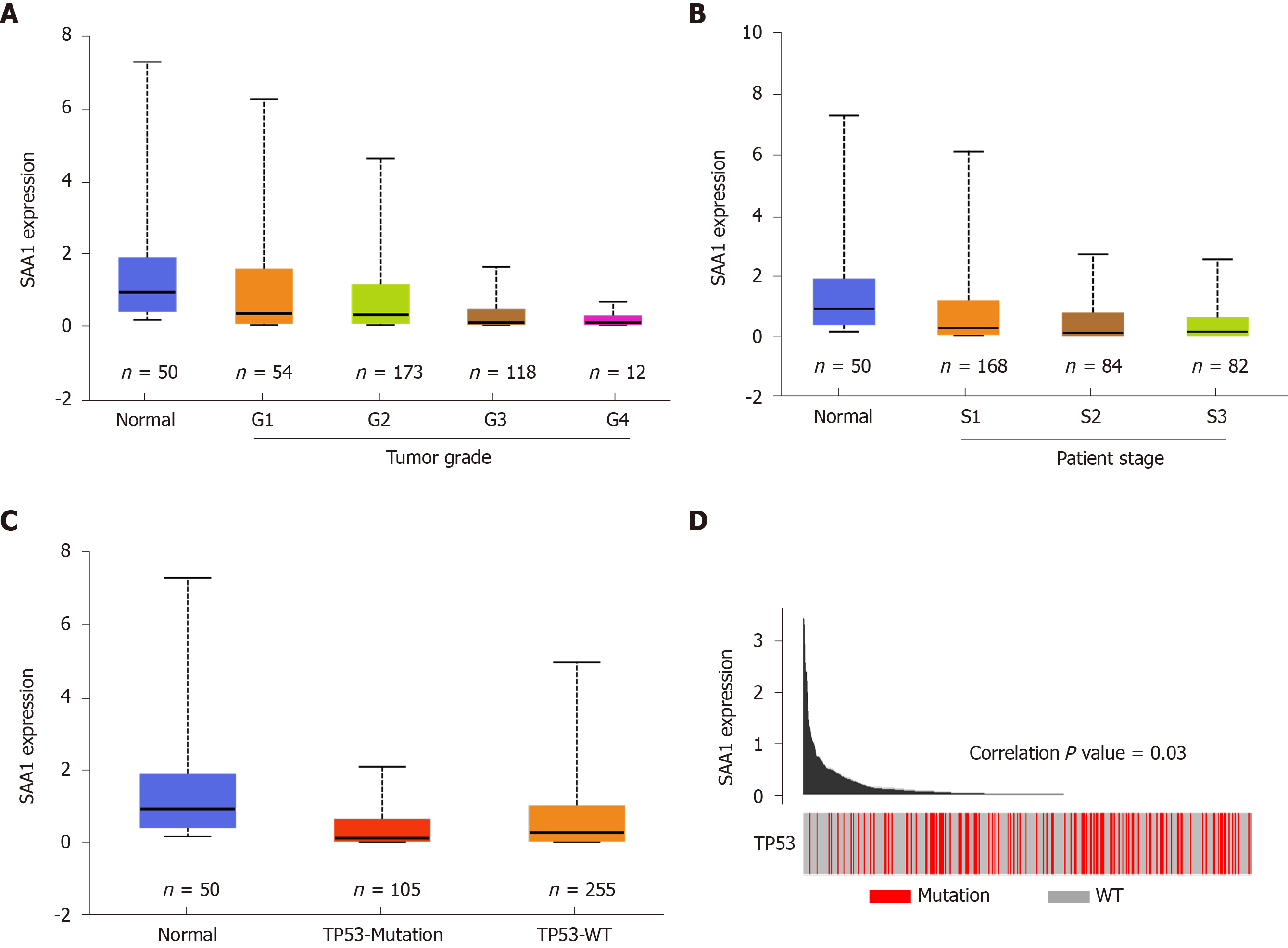Copyright
©The Author(s) 2020.
World J Gastroenterol. Sep 21, 2020; 26(35): 5287-5301
Published online Sep 21, 2020. doi: 10.3748/wjg.v26.i35.5287
Published online Sep 21, 2020. doi: 10.3748/wjg.v26.i35.5287
Figure 2 Serum amyloid A1 expression was correlated with hepatocellular carcinoma development.
A: The tumor tissues with different grades and surrounding non-tumor tissues were included to analyze the serum amyloid A1 (SAA1) expression; B: The tumor tissues with different disease stage and non-tumor tissues were conducted with the SAA1 expression analysis; C: The SAA1 expression was analyzed in tumor tissues with TP53 mutation or wild type, the non-tumor tissues were used as control; D: The correlation of SAA1 expression and the TP53 mutation was analyzed in the cancer genome atlas portal. SAA1: Serum amyloid A1; WT: Wild type; G1: Tumor grade 1; G2: Tumor grade 2; G3: Tumor grade 3; G4: Tumor grade 4; S1: Patient disease stage 1; S2: Patient disease stage 2; S3: Patient disease stage 3.
- Citation: Zhang W, Kong HF, Gao XD, Dong Z, Lu Y, Huang JG, Li H, Yang YP. Immune infiltration-associated serum amyloid A1 predicts favorable prognosis for hepatocellular carcinoma. World J Gastroenterol 2020; 26(35): 5287-5301
- URL: https://www.wjgnet.com/1007-9327/full/v26/i35/5287.htm
- DOI: https://dx.doi.org/10.3748/wjg.v26.i35.5287









